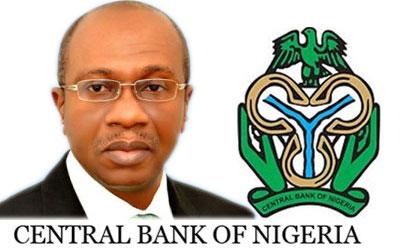The 18.8 percent drop in the usage of cheque books by customers of deposit money banks is threatening the survival of the Central Bank of Nigeria (CBN) accredited printers, Metrobusinessnews investigation indicated.
The decrease which amounted to over N105 billion loss by the five accredited security document printers has pushed them to evolve survival strategy.
The five printers accredited by the CBN last year include Superflux International Limited, Tripple Gee and Company Plc, Nigeria Security Printing and Minting Plc, Euphoria Group and Popi Printing Company Limited.
The introduction of electronic payment system channels by the Apex bank, though a welcome development for the enhancement of cashless society, put the printers to abattoir.
Consequently, the accredited printers which deal exclusively in security document printing have expanded their operations by introducing commercial activities.
Investigation by BusinessDay show that two out of 10 bank customers no longer use their cheque books for a long period due to the convenience they enjoy using electronic payments.
According to the CBN’s latest financial stability report, the volume and value of cheques decreased to 5,731,805 and N2,894.79 billion at end-June 2016 from 7,058,954 and N3,000.72 billion at end December 2015, reflecting decreases of 18.80 per cent and 3.53 per cent, respectively.
The decreases were attributable to the growing awareness and convenience of alternative payment modes.
The report also revealed that instant payment volume and value increased to 56,318,341 and N16,365.26 billion respectively, in the first half of 2016 from 41,678,698 and N13,593.72 billion in the second half of 2015 respectively. The increases were due to customers’ preference for instant settlement.
Taiwo Oyedele, Partner, PwC, said in an email response to BusinessDay that “I think the usage of cheques and bank drafts belong to the past, with e-banking these physical instruments serve very little or no useful purpose. I haven’t used my cheque book in years as it is far more convenient to transfer money online.
He said however there is a large portion of the society and also some corporate organisations where these instruments are still considered useful.
Robert Omotunde, head investment research, Afrinvest Securities limited, said there may be reasons to think that there should be no usage for cheques and bank drafts since there is a more convenient way through e-payment system, but we reckon that the peculiarity of usage may justify the use of other “near money” bills.
“Cheques can be used as a form of collateral for a loan advanced by banks or other financial institutions or individuals in which case cheques are postdated; you cannot postdate a transfer to another account. Similarly, certain payments to government account or large corporations may pose recognition challenges when done through internet transfers, hence, a bank draft may be more appropriate. In as much as a fast turnaround time of fund transfer from one account to the other can be guaranteed, the mode of payment (cheque, bank draft, e-payment etc.) may not matter”, he said in an email response to BusinessDay.
Also responding, Tunde Mabawonku, Chief Finance & Strategy Officer, Bank: Wema Bank Plc, the introduction of electronic payments and settlements has replaced and reduced the previously indispensable cheques and bank drafts that were accepted as the major instrument for settlement of financial obligations. As the notion of the world as a global village becomes even more experiential; and as innovation in communication breaks down the barriers that seemed to exist between different climes, electronic payments and settlements have also gotten easier, safer, faster, more acceptable and more accessible. A lot of players in the financial sector have upgraded their platforms to incorporate various e-payment platforms.
“Cheques are still in use by some consumers of financial services. This is due to lack of trust issues which could arise from electronic fraud instances, inability to navigate e-banking platforms and e-payments platforms to settle transactions and misunderstood assumptions about using electronic payments platforms. Computerized interbank settlement and clearing systems still provide the avenue for settling cheques or bankers draft due to the assurance that the full face value of the funds will be transferred upon the conclusion of the settlement process. It is mindful to note that electronic payments platforms are still a better alternative for initiating and concluding transactions of even higher volumes for those seeking near real-time value for transactions”, he said in an emailed response to BusinessDay questions.
